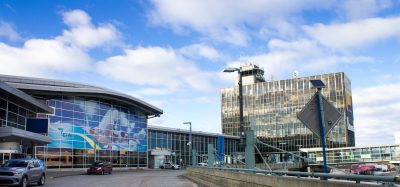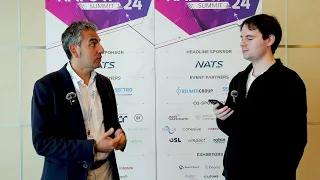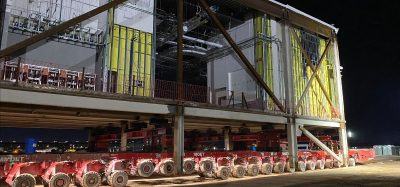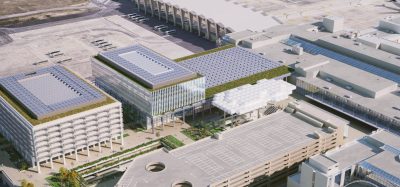Software solutions to solve de-icing dilemmas?
- Like
- Digg
- Del
- Tumblr
- VKontakte
- Buffer
- Love This
- Odnoklassniki
- Meneame
- Blogger
- Amazon
- Yahoo Mail
- Gmail
- AOL
- Newsvine
- HackerNews
- Evernote
- MySpace
- Mail.ru
- Viadeo
- Line
- Comments
- Yummly
- SMS
- Viber
- Telegram
- Subscribe
- Skype
- Facebook Messenger
- Kakao
- LiveJournal
- Yammer
- Edgar
- Fintel
- Mix
- Instapaper
- Copy Link
Posted: 10 May 2017 | Tim Klein | Managing Director | LTF Solutions | No comments yet
Tim Klein, Managing Director, LTF Solutions discusses how we should be looking more towards software-based de-icing solutions.
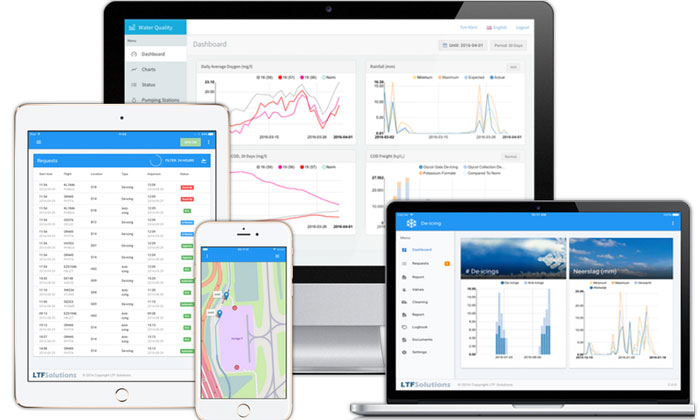

How exactly might a software solution optimise de-icing at an airport?
Each airport manages aircraft de-icing operations in a different way. As a result, there is no ‘one-size-fits-all’ solution. By working in close cooperation with airports, we are able to optimise all relevant aspects that are specific to their situation. These aspects include operational, environmental, financial and security based modules. Examples of common use cases are collecting data for management reports or compliance with government regulations, GPS-based functionality, messaging and logbook communication, water quality measurements and inspections. At most airports, de-icing does only takes place for part of the year. Therefore, it is important that operational knowledge does not get lost over time (skill fade). Our decision support system ensures consistency in decision-making, based on historical data and operational guidelines. For more than 10 years, we have been working closely with Schiphol Airport, one of Europe’s largest, to improve and expand our de-icing software on an annual basis. This has resulted in a widely deployable application, which manages and optimises the multiple aspects of deicing operations.
What does LTF offer that competitors do not?
By building our own (mobile and desktop) software application framework, we have managed to create a template to which shared modules and custom-built modules can be easily added. This ensures every client has a specific version of the application optimised for their use case, while maintaining the benefits of continuous updates and a cost-effective solution. Whereas most competitors use off-the-shelf software, in which customisation come at a high price, we prefer affordable custom-made solutions. One of the major advantages of our custom-made software modules is that they can conveniently integrate with existing data systems, such as flight information data, weather data, fleet management information and water quality sensors.
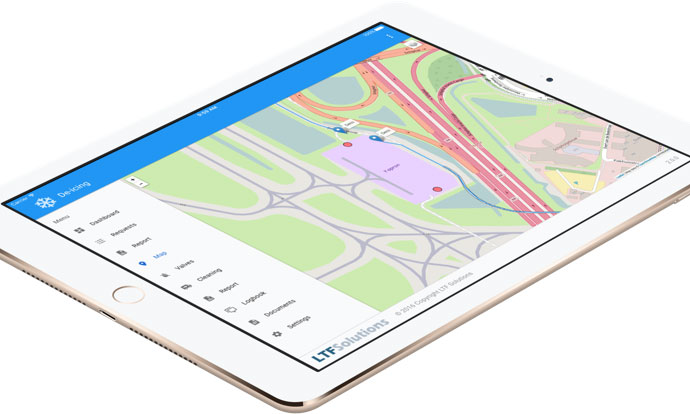

Are there any exciting new projects that LTF is currently working on?
One of the exciting projects that we are currently working on is upgrading our water quality software within our new mobile decision support framework. In collaboration with Schiphol Airport and the Rijnland District Water Control Board, we have developed an application for monitoring water pollution in Northern Holland. This update will ensure that the system supports better decision-making, based on multiple data sources, as well as enhances process automation. Another project we are currently working on is an innovative industry-specific fleet management system. In cooperation with an agricultural construction company, we are building a software solution that manages operating hours and inspections of its vehicles.
More generally, what role can data collection play in maximising the efficiency of an airport?
Data collection can optimise the efficiency of de-icing operations at multiple levels. The first step is ensuring that people make consistent decisions. Based on the provided data, the application will offer a decision profile that follows predefined guidelines and instruction manuals. Secondly, it is important to monitor the effect of the decision. How long does the de-icing process take? Does the cleaning crew arrive on time? Several different processes have to come together at the right moment for optimal de-icing. Finally, the collected data should be used to improve the process. Charts and management reports will allow you to easily see how the process can be optimised. This will save money, time and resources.
Finally, imagine we are having this conversation in a year’s time – what will have changed?
As a student of applied mathematics at the Technical University of Delft, I knew that a combination of mathematics, computer science and digital technologies would play a very important role in the future. More than 10 years later, with the right team of people and in close cooperation with large airports, we have shown that processes can be greatly optimised by combining data analyses with software applications. We view creating software as an organic process, in which we pay full attention to all user feedback and make iterative improvements, as well as adding functionality year on year. This ensures effective long-term software solutions. Therefore, in a year’s time, we will have launched several new projects, while our existing software will be even better than it is today.
Related topics
Airside operations, Information technology (IT), Runways and pavements, Safety




